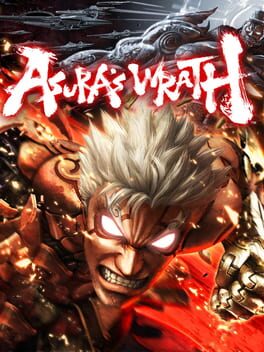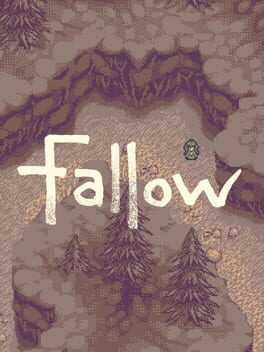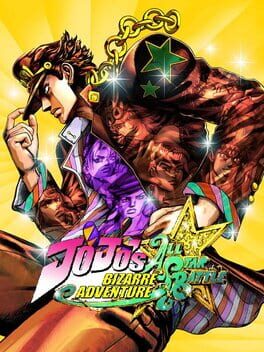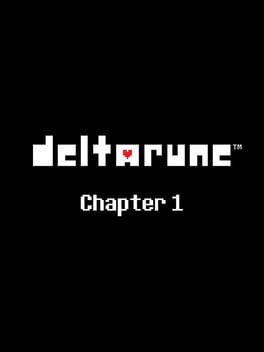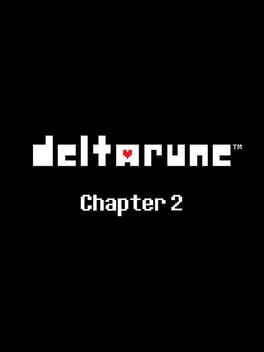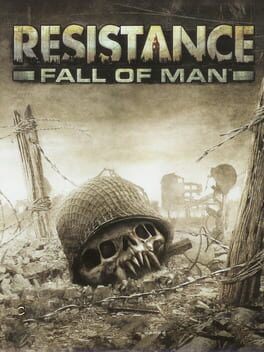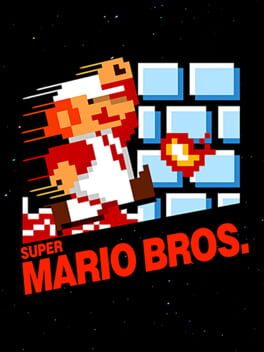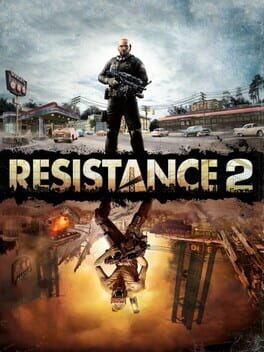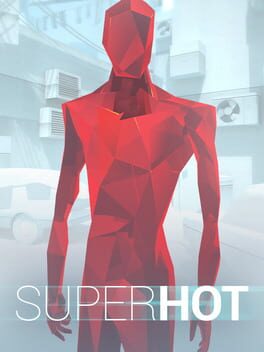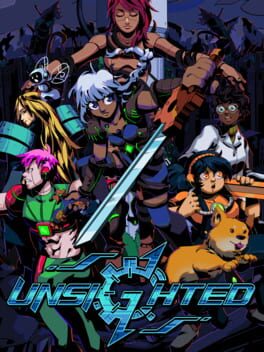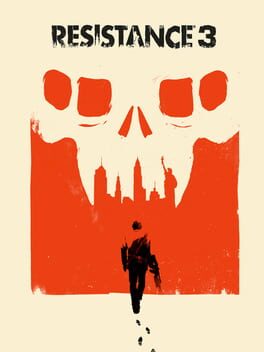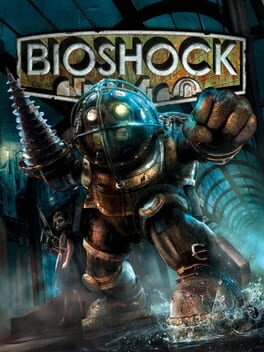2012
This game tries to economize its gameplay to make sure that everything you input is as meaningful as possible. To make sure of that, it provides a bombastic and loud story where big events happen constantly, or are brought up in the form of a flashback that avoid boring you on the quieter parts. While I applaud the effort and think that the DLC reaches some particularly interesting heights, it does not bode well for this approach that it requires something epic to happen every few seconds. If this was a TV show, as it's pretending to be most of the time, I'd be a bored by it pretty soon.
2021
A fascinating experience. It brought me back to the days of Dear Esther, in a weird way, and to a time in game design that seemed to prioritize metaphor and meaning over lore and worldbuilding. The story itself isn't really important, although it's fun to put it together; it's the idea of navigating these spaces and letting yourself get woven in the turmoil of their characters that it's so enrapturing.
2021
2018
I'll say this about Deltarune: at least the combat feels a lot more involving now, even though it's still a little bit too rigid for its own good. I'm no longer impressed by the tiny subversions that Toby Fox and Co. pull you from time to time, and I'm pretty tired of the lore by now. But I can't help but liking these characters too much. If anything, I'll play these for Susie.
2021
This review contains spoilers
I am going to try to collect my thought in some form of essay, but for the time being, I think Deltarune suffers because it tries to operate on three very different layers at the same time: one comes from the mechanics, another from the narrative and the last one from the metanarrative of it all.
The first layer tries to deepen the critique that Undertale already exposed by suggesting a combat system in which you wouldn't need to use the Fight command anywhere by making the Action as diverse and varied as possible. This means that, for all purposes, Actions now are akin to the decisions you make in a visual novel or a graphic adventure, which is fine, but makes framing these encounters as "fights" weirder and weirder. If we take into account that some of the Actions are understood by the narrative as acts of violence as well, then what purpose does setting this distinction make anymore? And considering that now there's a collectable element to sparing enemies, that makes the whole affair just another mechanical chore that hast lost all the bite it purported to have.
The second layer is probably the strongest, because it tries to convey an emotional truth through dialogue and characters that feel as charming and relatable as they were in Undertale. I said this before, but if I keep playing these titles is for the characters. But that poses an important problem, which is that basically I'm not allowed to know about some of these characters' more interesting traits if it's not by straining them out of the "good" path, which is still as rigid as before. Instead of creating a tantalizing moment in which I'm wondering whether to explore some part of Noelle's past or the other, I have to choose between a pre set "pacifist" route that morally obligues me to not knowing these characters unless I deliberately bring harm unto them.
Which brings us to the third and last layer, the metanarrative. Just like with Undertale, Deltarune tries to make a point about choosing to be a bad person in video games and suffering the consequences, and unlike the first chapter, it reaffirms the consequences of my actions and encourages me to suck them up. But I mus ask, what is the point of it now? Do I really need to be taught that there are better ways to play? In that case, why develop a whole system around a specific ability (the Ice Magic of Noelle) and its outcome? Just for the sake of it? Isn't that diametrically opposed to what the game purports to be about?
I think Deltarune is confused about which route to take, and in trying to do everything at the same time, suffers for it. I know why I'm playing it, but I'm bothered that it thinks that I'm doing it for the wrong reasons.
The first layer tries to deepen the critique that Undertale already exposed by suggesting a combat system in which you wouldn't need to use the Fight command anywhere by making the Action as diverse and varied as possible. This means that, for all purposes, Actions now are akin to the decisions you make in a visual novel or a graphic adventure, which is fine, but makes framing these encounters as "fights" weirder and weirder. If we take into account that some of the Actions are understood by the narrative as acts of violence as well, then what purpose does setting this distinction make anymore? And considering that now there's a collectable element to sparing enemies, that makes the whole affair just another mechanical chore that hast lost all the bite it purported to have.
The second layer is probably the strongest, because it tries to convey an emotional truth through dialogue and characters that feel as charming and relatable as they were in Undertale. I said this before, but if I keep playing these titles is for the characters. But that poses an important problem, which is that basically I'm not allowed to know about some of these characters' more interesting traits if it's not by straining them out of the "good" path, which is still as rigid as before. Instead of creating a tantalizing moment in which I'm wondering whether to explore some part of Noelle's past or the other, I have to choose between a pre set "pacifist" route that morally obligues me to not knowing these characters unless I deliberately bring harm unto them.
Which brings us to the third and last layer, the metanarrative. Just like with Undertale, Deltarune tries to make a point about choosing to be a bad person in video games and suffering the consequences, and unlike the first chapter, it reaffirms the consequences of my actions and encourages me to suck them up. But I mus ask, what is the point of it now? Do I really need to be taught that there are better ways to play? In that case, why develop a whole system around a specific ability (the Ice Magic of Noelle) and its outcome? Just for the sake of it? Isn't that diametrically opposed to what the game purports to be about?
I think Deltarune is confused about which route to take, and in trying to do everything at the same time, suffers for it. I know why I'm playing it, but I'm bothered that it thinks that I'm doing it for the wrong reasons.
El equipo detrás de Ratchet & Clank intenta crear una mezcla insulsa entre Halo y Call of Duty ¿Te llama? Menudo rollo.
--------------------------------------------------------------------
The team behind Ratchet & Clank tries to an hybrid between Halo and Call of Duty. Are you excited? Just personified blandness.
--------------------------------------------------------------------
The team behind Ratchet & Clank tries to an hybrid between Halo and Call of Duty. Are you excited? Just personified blandness.
1985
2012
2008
Si el primer juego quería ser una mezcla entre Halo y Call of Duty, el segundo imita el mismo estilo que Halos más tardíos y juegos de disparos medio de terror tomarían más tarde. Como resultado, a pesar de sentirse mejor diseñado, se mantiene igual de aburrido y poco inspirado. Me molesta especialmente la manera que intenta relegar su historia y caracterización a los documentos que agarras por el camino, como si la necesidad de dotar al mundo de una razón de ser que fuera más allá de las manidas secuencias de acción no valiera de mucho.
----------------------------------------------------------------------------
If the first game tried to be a mixture between Halo and Call of Duty, the second imitates the same style that later Halos and semi-horror shooters would take. As a result, despite feeling better designed, it remains as boring and uninspired as ever. I'm particularly irked by the way it tries to push all its story and characterization to the Intel you pick up, as if creating a compelling narrative to the boring action sequences was just an afterthought.
----------------------------------------------------------------------------
If the first game tried to be a mixture between Halo and Call of Duty, the second imitates the same style that later Halos and semi-horror shooters would take. As a result, despite feeling better designed, it remains as boring and uninspired as ever. I'm particularly irked by the way it tries to push all its story and characterization to the Intel you pick up, as if creating a compelling narrative to the boring action sequences was just an afterthought.
2016
Me encantó este juego, hasta las partes que intentan tanto que acaban pasándose.
Parte del motivo por el que me encajó tan bien es por el hecho de que, al margen las rupturas a la cuarta pared y su metacomentario al comportamiento obsesivo de algunes jugadores con contenido violento, se las apaña para ser una historia de terror sobre un programa siniestro que te seduce y posee. Así que, de un modo que no me esperaba, se las apaña para funcionar como un título para Halloween (conozco el Pumpkin Mode).
----------------------------------------------------------------
I thoroughly enjoyed this game, even the parts that are trying so much that they cringe.
Part of the reason it worked for me so well was the fact that, for all its pretension of breaking fourth walls and commenting on players' obsession with violent content, it manages to be a spooky story about a cryptid designed to seduce and possess you. So in a weird way, this game is perfect as a Halloween fit (I'm aware there's a Pumpkin Mode).
Parte del motivo por el que me encajó tan bien es por el hecho de que, al margen las rupturas a la cuarta pared y su metacomentario al comportamiento obsesivo de algunes jugadores con contenido violento, se las apaña para ser una historia de terror sobre un programa siniestro que te seduce y posee. Así que, de un modo que no me esperaba, se las apaña para funcionar como un título para Halloween (conozco el Pumpkin Mode).
----------------------------------------------------------------
I thoroughly enjoyed this game, even the parts that are trying so much that they cringe.
Part of the reason it worked for me so well was the fact that, for all its pretension of breaking fourth walls and commenting on players' obsession with violent content, it manages to be a spooky story about a cryptid designed to seduce and possess you. So in a weird way, this game is perfect as a Halloween fit (I'm aware there's a Pumpkin Mode).
2021
Este juego cae en una categoría de título que Ross Scott (de Ross' Game Dungeon) describió como "no están mal, pero...". Básicamente, se trata de títulos aceptable por sí solos, pero no hay nada específico que los haga destacar de un modo significativo. Unsighted es un clon de Zelda relativamente competente que toma notas de todos los juegos de acción-RPG de los últimos años y referencia el pixel art de la última década (espera un estilo a lo Hyper Light Drifter y Titan Souls). Todo eso lo mezcla con una idea interesante que, la mayoría de las veces, se siente que está empujando contra los otros elementos del juego.
El juego tiene Decente escrito a lo largo de su código: tiene píxel art Decente (que no increíble), tiene personajes Decentes (aunque muy derivados de otros ya existentes), y tiene un gameplay Decente (pero no lo bastante interesante como para hacerte querer volver a vivirlo). Si eres completista, acabarás en cuanto consigas el último logro y no volverás jamás. Como otros juegos que pululan el espacio del triple I a día de hoy (junto a Hollow Knight, Dandara y otros juegos), se siente que Pixel Punk sabe agasajar al tipo de público que adora los RPGs y el píxel art, pero no mucho más.
------------------------------------------------
This game falls neatly into a category of titles that Ross Scott kindly described as "not bad, but...". Basically, they are decent enough on their own, but nothing about them makes them stand or pop out in any meanigful way. Unsighted is a moderately competent Zelda-like that takes notes from every successful action-RPG that uses pixel art of the last decade (expect a lot of Titan Souls and Hyper Light Drifter on this), mixes it with a kinda novel idea that most of the times feels like its pushing against other elements of the game, and complements it with a variety of nods and references that amount to nothing.
The game has Decent labeled all over its code: it has Decent (but not incredible) pixel art, it has Decent (but highly derivative of other works) characters and it has Decent (but not interesting enough to make you want to come back more than once of twice) gameplay. If you're a completist, you'll be done as soon as you hit the last achievement and never think of this again. Much like many other games of the current triple I sphere (alongside Hollow Knight, Dandara and similar others), it feels like Pixel Punk knows how to pander to an audience of pixel-art, action-RPG enthusiasts, but not much else.
El juego tiene Decente escrito a lo largo de su código: tiene píxel art Decente (que no increíble), tiene personajes Decentes (aunque muy derivados de otros ya existentes), y tiene un gameplay Decente (pero no lo bastante interesante como para hacerte querer volver a vivirlo). Si eres completista, acabarás en cuanto consigas el último logro y no volverás jamás. Como otros juegos que pululan el espacio del triple I a día de hoy (junto a Hollow Knight, Dandara y otros juegos), se siente que Pixel Punk sabe agasajar al tipo de público que adora los RPGs y el píxel art, pero no mucho más.
------------------------------------------------
This game falls neatly into a category of titles that Ross Scott kindly described as "not bad, but...". Basically, they are decent enough on their own, but nothing about them makes them stand or pop out in any meanigful way. Unsighted is a moderately competent Zelda-like that takes notes from every successful action-RPG that uses pixel art of the last decade (expect a lot of Titan Souls and Hyper Light Drifter on this), mixes it with a kinda novel idea that most of the times feels like its pushing against other elements of the game, and complements it with a variety of nods and references that amount to nothing.
The game has Decent labeled all over its code: it has Decent (but not incredible) pixel art, it has Decent (but highly derivative of other works) characters and it has Decent (but not interesting enough to make you want to come back more than once of twice) gameplay. If you're a completist, you'll be done as soon as you hit the last achievement and never think of this again. Much like many other games of the current triple I sphere (alongside Hollow Knight, Dandara and similar others), it feels like Pixel Punk knows how to pander to an audience of pixel-art, action-RPG enthusiasts, but not much else.
2011
Si el primer juego quería ser como Halo y el segundo quería ser un juego de procesos militares a lo Call of Duty (pero con aliens), el tercer Resistance intenta simular los FPS post-apocalípticos tipo Metro y Homefront, que estaban de moda entonces.
En sí mismo, el juego se juega bien, y tiene una selección de armas que no se siente tan diversa como antes pero tampoco se siente incoherente. También tiene una selección decente de enemigos, que están ahora muy jerarquizados, y un sistema de mejoras que es más suave de lo que creí que sería. También hay referencias raras a eras más antiguas de diseño FPS, como prescindir de la regeneración de salud (y gracias a Dios por ello). En ese aspecto, así como por el peso de la narrativa, este juego puede recordarte más a Half-Life 2 que a otra cosa.
Habiendo dicho eso, sigue siendo soso y aburrido. Ahora no tenemos brutotes militares que lanzan órdenes entre ellos, pero un cuento completo de excepcionalismo gringo en el que los aliens actúan de metáfora de invasores extranjeros y los valores más reconocidos de los USA son exaltados, desde la susodicha Resistencia hasta el fanatismo religioso. No podemos olvidarnos del capítulo por la prisión, que nos sirve para reconocer la propensión natural del ser humano hacia el mal y alabar los lazos familiares tradicionales.
Así que, en conclusión, ha sido interesante ver a Insomniac emular todos los tópicos del género durante tantos años. El arte corporativo debe pagar muchas facturas, me figuro.
-----------------------------------------------------------
If the first game wanted to be like Halo and the second wanted to be a military procedural a la Call of Duty (but with aliens), the third Resistance aims to simulate post-apocaliptic FPSs like Metro and Homefront, which were all the rage at the moment.
In and on itself, the game plays fine, and has a decent variety of weapons that doesn't feel as diverse as previous titles but also doesn't feel disjointed. It also has a pretty decent selection of enemies, which are now heavily stratified, and an upgrading system that's smoother than I thought it'd be. There are also weird callbacks to earlier eras of FPS design, like the omission of regenerating health (and thank God for it). In that regard, as well as for the weight of its narrative, this game might remind you of Half-Life 2 more than anything else.
That being said, it's still pretty dull and boring. Now we don't have military gruffs spouting command lines at each other, but a full-blown tale of American exceptionalism in which the aliens are coding for foreign invaders and the highest virtues of the US are exalted, from the titular Resistance to religious zealots. Also can't forget the prison episode, in which we reaffirm humanity's natural propensity towards evil while exalting the bonds of traditional family values.
So in conclusion, it's been a trip watching Insomniac play into all the tropes of the genre for so many years. Corporate art sure does pay the bills, I reckon.
En sí mismo, el juego se juega bien, y tiene una selección de armas que no se siente tan diversa como antes pero tampoco se siente incoherente. También tiene una selección decente de enemigos, que están ahora muy jerarquizados, y un sistema de mejoras que es más suave de lo que creí que sería. También hay referencias raras a eras más antiguas de diseño FPS, como prescindir de la regeneración de salud (y gracias a Dios por ello). En ese aspecto, así como por el peso de la narrativa, este juego puede recordarte más a Half-Life 2 que a otra cosa.
Habiendo dicho eso, sigue siendo soso y aburrido. Ahora no tenemos brutotes militares que lanzan órdenes entre ellos, pero un cuento completo de excepcionalismo gringo en el que los aliens actúan de metáfora de invasores extranjeros y los valores más reconocidos de los USA son exaltados, desde la susodicha Resistencia hasta el fanatismo religioso. No podemos olvidarnos del capítulo por la prisión, que nos sirve para reconocer la propensión natural del ser humano hacia el mal y alabar los lazos familiares tradicionales.
Así que, en conclusión, ha sido interesante ver a Insomniac emular todos los tópicos del género durante tantos años. El arte corporativo debe pagar muchas facturas, me figuro.
-----------------------------------------------------------
If the first game wanted to be like Halo and the second wanted to be a military procedural a la Call of Duty (but with aliens), the third Resistance aims to simulate post-apocaliptic FPSs like Metro and Homefront, which were all the rage at the moment.
In and on itself, the game plays fine, and has a decent variety of weapons that doesn't feel as diverse as previous titles but also doesn't feel disjointed. It also has a pretty decent selection of enemies, which are now heavily stratified, and an upgrading system that's smoother than I thought it'd be. There are also weird callbacks to earlier eras of FPS design, like the omission of regenerating health (and thank God for it). In that regard, as well as for the weight of its narrative, this game might remind you of Half-Life 2 more than anything else.
That being said, it's still pretty dull and boring. Now we don't have military gruffs spouting command lines at each other, but a full-blown tale of American exceptionalism in which the aliens are coding for foreign invaders and the highest virtues of the US are exalted, from the titular Resistance to religious zealots. Also can't forget the prison episode, in which we reaffirm humanity's natural propensity towards evil while exalting the bonds of traditional family values.
So in conclusion, it's been a trip watching Insomniac play into all the tropes of the genre for so many years. Corporate art sure does pay the bills, I reckon.
2007
Siendo lo más honestos posibles, este juego es un título mediocre que trata de Decir Algo mediante escenas hiper-elaboradas y monólogos mal justificados.
Habiendo dicho esto, es cierto que algunas de estas escenas son bonitas, y muestran imaginación. Pero cualquier esfuerzo que este juego dedica para hacer mapas significativos alcanza su pico con Ryan y tropieza hasta un final ridículo que intenta juzgar tu actitud hacia unas muñecas de ojos saltones.
Al mismo tiempo, las conversaciones que estas escenas provocaron dieron lugar a muchas conversaciones, y por ello estoy agradecido. Pero por el resto de cosas que intentó hacer, no me siento tan agradecido.
-----------------------------------------------------------------------------------
Since I already wrote so much about this game in Spanish, I might as well do it in English. To put it bluntly, this is a mediocre title that's hoping to Say Something by making lavish set pieces and filling everything with poorly justified monologues.
That being said, it is a very beautiful set piece, and imaginative to boot. But any effort the game makes towards making its maps meaningful reaches a peak at the scene with Ryan near the end, and then tumbles down to a ridiculous ending that tries to judge you for maltreating big-eyed dolls.
At the time, the ideas conveyed through that scene spurred a lot of conversations, and for that I'm pretty grateful that this game exists. But for the rest of things it has brought about, I'm not so grateful for.
Habiendo dicho esto, es cierto que algunas de estas escenas son bonitas, y muestran imaginación. Pero cualquier esfuerzo que este juego dedica para hacer mapas significativos alcanza su pico con Ryan y tropieza hasta un final ridículo que intenta juzgar tu actitud hacia unas muñecas de ojos saltones.
Al mismo tiempo, las conversaciones que estas escenas provocaron dieron lugar a muchas conversaciones, y por ello estoy agradecido. Pero por el resto de cosas que intentó hacer, no me siento tan agradecido.
-----------------------------------------------------------------------------------
Since I already wrote so much about this game in Spanish, I might as well do it in English. To put it bluntly, this is a mediocre title that's hoping to Say Something by making lavish set pieces and filling everything with poorly justified monologues.
That being said, it is a very beautiful set piece, and imaginative to boot. But any effort the game makes towards making its maps meaningful reaches a peak at the scene with Ryan near the end, and then tumbles down to a ridiculous ending that tries to judge you for maltreating big-eyed dolls.
At the time, the ideas conveyed through that scene spurred a lot of conversations, and for that I'm pretty grateful that this game exists. But for the rest of things it has brought about, I'm not so grateful for.
